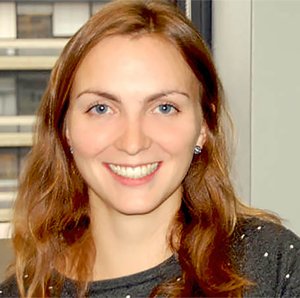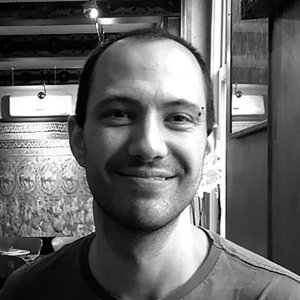Dutch Research Council NWO awarded a 'Veni' grant to two young UT scientists, Dr. Annika Betken and Dr. Hans-Christian Ruiz. Thanks to this grant, they can work out their innovative research ideas for a period of three years. Annika will work on changes in time series, Hans-Christian on new ways of artificial intelligence, using special materials.
Normally, NWO would grant the Veni's to all disciplines just before Christmas. Caused by a recent cyber attack on the systems, the December grants are for the physical and health sciences (ENW and ZonMW, respectively), while the grants for Social Sciences and Applied Technical Sciences will be awarded next Spring. This causes some distortion in the number of grants.
'Veni' is part of the talent programme of NWO: 'veni' for scientists who recently did their PhD, 'vidi' for more experienced scientists and 'vici' for scientists further up in their career. Veni laureates will receive 280,000 euro for working out their innovative ideas, for a period of three years.
Annika Betken: time series
 Strong correlations or structural changes?
Strong correlations or structural changes?
Yearly averaged temperatures, daily values of stock market indices, your minutely recorded heartbeat. Time series appear everywhere. Do deviations in their progression result from structural changes or long-term correlations? This question corresponds to a relevant, but misunderstood problem. Annika's research will change perspective on this issue and will offer a mathematical solution.
Annika is a member of the Statistics research group of Prof. Johannes Schmidt-Hieber, faculty of Electrical Engineering, Mathematics and Computer Science (EEMCS).
Hans-Christian Ruiz: materials for AI
 Efficient AI with material-based neural networks
Efficient AI with material-based neural networks
The unprecedented success of artificial intelligence (AI) comes at the price of unsustainable computational costs. This project will research the potential of a novel technology for highly efficient AI hardware: “material-based neural networks”. This technology will enable the next generation of efficient AI systems for edge computing and autonomous systems.
Hans-Christian is a member of the Nano-Electronics research group of Prof. Wilfred van der Wiel, Faculty of Electrical Engineering, Mathematics and Computer Science (EEMCS) and Centre for Brain-Inspired Nano Systems (BRAINS).





